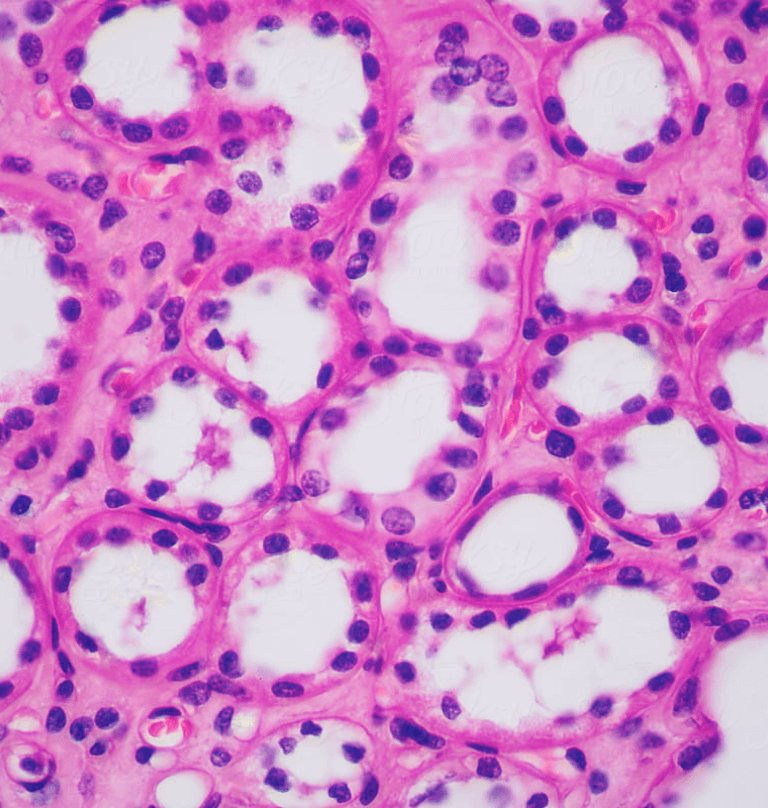What's New
Unlocking the Benefits of Nutrigenomics: Why You Should Consider a Personalized Nutrition and Fitness Test

Unlocking the Benefits of Nutrigenomics: Why You Should Consider a Personalized Nutrition and Fitness Test
In the quest for optimal health, many of us turn to diet and exercise, yet despite our best efforts, we might not see the results we desire. This is because the "one-size-fits-all approach" often fails to consider our unique genetic makeup. This is where nutrigenomics comes in, offering personalized insights into how our genes affect our response to food and exercise. Getting a nutrigenomics test done can be a game-changer for your health journey. In this article, we explore the benefits of nutrigenomics and how it can help you achieve your health and fitness goals.
What is Nutrigenomics?
As you may know, nutrigenomics is the study of how our genes interact with our diet and lifestyle choices. By analyzing your DNA, a nutrigenomics test can reveal how your body metabolizes different nutrients, your sensitivity to various foods, and help you optimize your diet and fitness regimen based on your genetic profile.
The Power of Personalized Nutrition:
One of the most significant benefits of nutrigenomics is the ability to tailor your nutrition plan to your genetic makeup. Here are some key ways personalized nutrition can enhance your health:
- Optimized Nutrient Intake: Your genes influence how well you absorb and process nutrients. For example, some people have genetic variations that affect their ability to metabolize vitamins like B12 and D. A nutrigenomics test can identify these variations, allowing you to adjust your diet or take supplements to ensure you’re getting the right nutrients.
- Weight Management: Genes play a role in how your body stores fat and how you respond to different types of diets. According to a study published in Obesity Reviews, people who followed a genetically tailored diet lost significantly more weight than those on a standard diet. By understanding your genetic predispositions, you can choose a diet plan that is more effective for weight loss and maintenance.
- Food Sensitivities & Intolerances: Many individuals suffer from food sensitivities without realizing it. Nutrigenomics can identify genetic markers associated with lactose intolerance, gluten sensitivity, and other food reactions. With this knowledge, you can avoid foods that may cause discomfort or health issues.
The Optimization of Fitness & Performance:
Beyond nutrition, your genetic makeup also affects how you respond to exercise. Here’s how a nutrigenomics test can help you optimize your fitness routine:
- Understand Exercise Response: Genes influence your aerobic capacity, muscle strength, and recovery rate. By understanding these genetic factors, you can tailor your workouts to match your body’s strengths and weaknesses. For example, some people may benefit more from endurance training, while others might excel with strength training.
- Mitigate Injury: Genetic testing can reveal your susceptibility to certain injuries, such as tendonitis or stress fractures. With this information, you can modify your exercise routine to minimize the risk of injury, ensuring a safer and more effective fitness journey.
- Enhance Recovery: Your genes affect how quickly you recover from exercise and how well your body responds to different recovery strategies. A nutrigenomics test can provide insights into the best foods and supplements to aid in your recovery. This will help you get back to your workouts faster and more effectively.
The Real-Life Benefits of Nutrigenomics:
Our Personalized Nutrition and Fitness Test provides a comprehensive analysis of your genetic profile, offering actionable insights to optimize your health. As seen in our Nutrigenomix Sample Report, users receive detailed information on their genetic predispositions related to metabolism, nutrient needs, weight management, and exercise response.
For instance, the report might indicate a higher need for omega-3 fatty acids. With this knowledge, you can adjust your diet to include more omega-3-rich foods like fish and flaxseeds or consider supplementation.
Additionally, the report could reveal a predisposition to slower muscle recovery. Armed with this information, you can incorporate specific recovery techniques, such as proper post-workout nutrition and adequate rest, to enhance your fitness regimen.
The Science Behind Our Test:
Numerous studies support the efficacy of personalized nutrition and fitness plans based on genetic testing. Research published in the American Journal of Clinical Nutrition found that individuals who received DNA-based dietary advice showed greater improvements in eating habits and health markers compared to those who received standard dietary advice. This underscores the potential of nutrigenomics to transform your approach to health and wellness.
Why You Should Consider a Nutrigenomics Test:
In summary, investing in a nutrigenomics test is an investment in your health. By understanding your genetic makeup, you can:
- Optimize your nutrient intake and diet
- Achieve and maintain a healthy weight
- Enhance your fitness performance
- Improve overall well-being
- Mitigate injuries
Nutrigenomics bridges the gap between genetics and lifestyle, providing a personalized roadmap to help you better your health. By leveraging your genetic information, you can make more informed choices about your diet and fitness. Don't rely on generic advice—take the next step in your health journey and unlock the benefits of nutrigenomics.
The process to get started is simple: order your kit, provide a DNA sample, and receive your personalized report with practical recommendations. We also offer an option that includes a 30-minute consultation with a registered dietician to review your results. We highly recommend this option if you're not already working with a healthcare practitioner, as it will help you get the most out of your report.
Disclaimer: This website has been developed by Inagene Diagnostics Inc for information purposes only. It does not provide medical advice, diagnosis, treatment or care. If you have a health problem, medical emergency, or a general health question, you should contact a physician or other qualified health care provider for consultation, diagnosis and/or treatment. Under no circumstances should you attempt self-diagnosis or treatment based on anything you have seen or read on this website. For more information about how to use this site, please see our Terms of Service.
Sources:
- Obesity Reviews: https://onlinelibrary.wiley.com/doi/10.1111/obr.12727
- Inagene Sample Report: https://cdn.shopify.com/s/files/1/0081/7437/0913/files/Health-sample-report-en-ca-y7bgQ5v3.pdf?v=1715284817
- American Journal of Clinical Nutrition: https://academic.oup.com/ajcn/article/104/2/406/4564993
